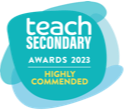How will these resources help you?
Religion in the UK is undoubtedly changing. England and Wales are no longer majority-Christian countries. Could this then spark a decline in morality? Religion may depend on morality, but does morality depend on religion? This is a great time to engage students in the debates surrounding religion and morality and the possible power shift of the place of religion and the societal impact this may have. Can spirituality be disconnected from religion, and are we becoming more spiritual than religious? Humanism is undoubtedly on the rise, so could a spiritualist approach be our new vessel for the future of morality?
Do we need religion for a spiritual life?
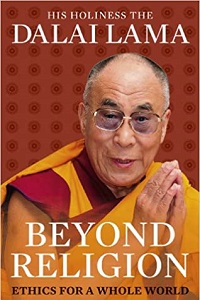
Beyond Religion: Ethics for a Whole World
by His Holiness the Dalai Lama, published by Rider, (2013), 9781846043109
This is a challenging but accessible read, equipped with humour, stories and great insight. It would work well for A-Level students looking for perspectives on religion and morality or studying Buddhism as a worldview. The book is an appeal to our shared humanity. Essentially it is about becoming a better person without the need for religion while at the same time showing respect, admiration and compassion for religious faith and people who do follow a religion. The book would appeal to both atheists and believers who share a common ground of wanting to improve the world. The Dalai Lama takes universal ideas and explains them in practical and modern ways. He makes good connections to his own life and uses stories that people can relate to. For example, he explains that when he was ill, he was comforted to know people were praying for him, but a little more comforted to know that he was in a hospital with good medicine and equipment!
The original Christian message?
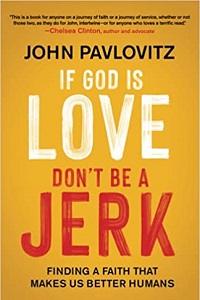
If God Is Love, Don't Be a Jerk: Finding a Faith That Makes Us Better Humans
by John Pavlovitz, published by Westminster John Knox Press, (2021), 9780664266844
‘Thou shalt not be horrible. Imagine for a moment what the world might look like if we as people of faith, morality, and conscience actually aspired to this mantra. If your religion does not make you more compassionate, then what is the point?’ Pavlovitz explores this idea throughout this book, making references to people who are LGBTQ+ and to questions about immigration, homelessness and a woman’s right to choose. It is an appeal for the Christian faith and those who follow it to return to the original ideals of love and compassion; something he argues that organised religion often forgets and misses out when thinking of others and societal ethics today. It would be good to use as a reference book or on a reading list for GCSE and A-level students, many of whom do battle with some of the teachings of religion on contemporary issues such as abortion and gay marriage.
What if Jesus had a twin?
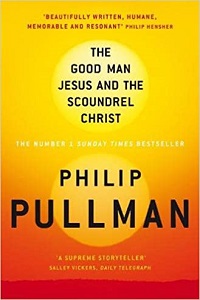
The Good Man Jesus and the Scoundrel Christ
by Philip Pullman, published by Canongate, (2017), 9781786891952
This is essentially a story that reimagines the New Testament. Mary had twins; one called Jesus and the other called Christ. Their lives remain intertwined, yet they go on very different courses. It is easy to read and would appeal to students of all ages who have an interest in Christianity and religion. It is told as a story but does attempt to explain away a lot of the miracles told in the Gospels and is, in some ways, an attack on the power of the Church. Pullman says, ‘My beliefs are those of Jesus as I have him expressing them in the Garden of Gethsemane. If there is to be a church, it should be a poor church. It should own no property and make no laws.’ This book could encourage students to engage in reading the Bible alongside or afterwards, and perhaps cross-referencing the ideas; to think about the effect (good and bad) religion can and has had on morality and the power this has had in the world.
Why do good people have different morals?
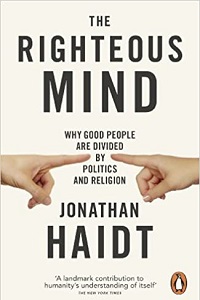
The Righteous Mind: Why Good People are Divided by Politics and Religion
by Jonathan Haidt, published by Penguin, (2013), 9780141039169
This book would appeal as wider reading for students and teachers of religion, but also politics, history and psychology. It attempts to explain why and how people have different moral compasses and looks at ways to bring these together to improve humanity. Haidt explains that, contrary to what much of western philosophy has claimed, our intuitions, rather than logic and reasoning, drive our morality. He goes on to explain that there are core values that drive our morality and it is the weight individuals put on these values that determine their own morality and the groupings they form. Haidt argues that our goals need to share the core values if we are to bring people together morally and politically, and that emotions have a big role to play in decision-making and ethics. A fascinating read to add to the debate about morality and religion.
Audiovisual clip

Sex, Death and the Meaning of Life - Atheism, empathy, and morality
published by Channel 4, (2012)
A spotlight shown on empathy as the foundation for morality in non-religious scenarios.
Further materials
Let's teach religion – all religion – in schools by Dan Dennett, published by TED, (2006)
Watch this video
Morals Without Religion: the Unholy Mrs Knight and the Hypocritical Humanist by Alice Roberts, published by Humanists UK, (2020)
Watch this video
Shamanism, pagans and wiccans: trends from the England and Wales census by Robert Booth, Carmen Aguilar García and Pamela Duncan, published by The Guardian, (2022)
Read this article
The big idea: do we still need religion? by Robin Dunbar, published by The Guardian, (2022)
Read this article
Alison McMillan is the Curriculum Tutor for RE trainee teachers at the University of Sussex and leads the Religion and Philosophy department at a secondary school in West Sussex. Alison has extensive experience in teaching as well as examining A-level and GCSE Religious Education.
Text © Alison McMillan, 2023.
Text © Alison McMillan, 2023.


